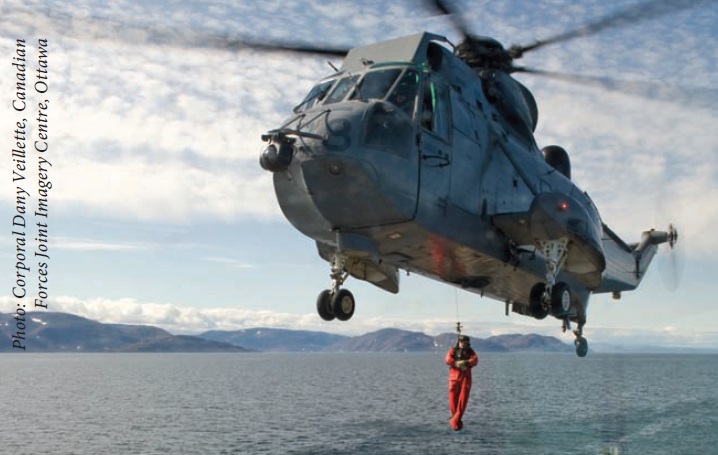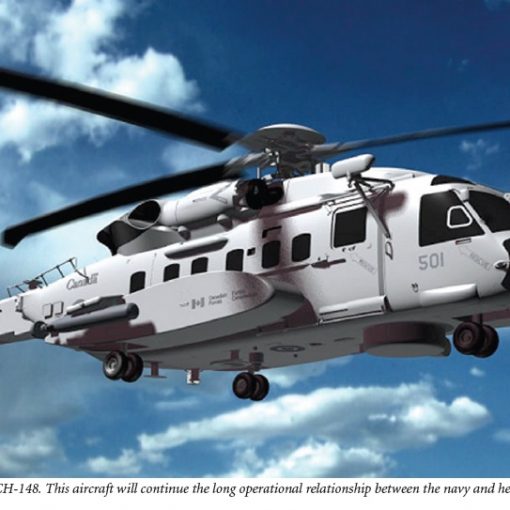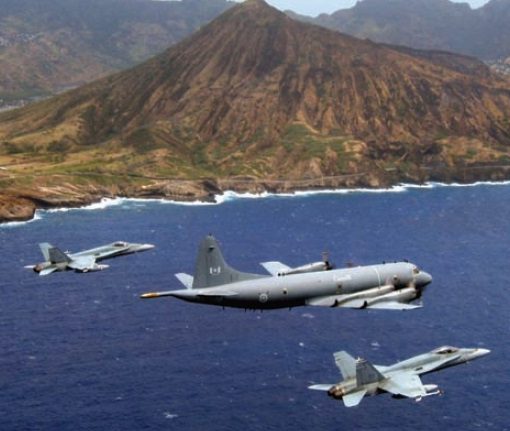Friday’s news carried a couple of stories that speculated on whether or not the Sikorsky H-92 ‘Cyclone’ helicopter deal will be cancelled. CBCNews ran a story, entitled ‘Other options’ sought for Sea King Helicopter replacements, that quoted Public Works spokesperson Amber Irwin as saying, “the government is considering other options for the maritime helicopter project.” An article by Murray Brewster for Canadian Press, entitled Harper government now evaluating helicopters ‘other’ than troubled Cyclones, cited Irwin further as saying, “We are conducting an analysis of price and availability of other aircrafts manufactured by other vendors.” Brewster’s article also states “an officer from the air force directorate of the air requirements branch visited a southern base in the United Kingdom recently to look at Royal Navy HM-1 Merlin helicopters.” At first glance, it all seems to indicate that a change may be imminent and that the air force and navy are once again entertaining the idea of the Merlin helicopter. I am not so sure about this.
For anyone not aware, the HM-1 Merlin is the same EH-101 helicopter originally selected by the Mulroney Conservative government as the Sea King replacement and subsequently cancelled by Liberal Prime Minister Jean Chretien in 1993. The contract cancellation resulted in a penalty clause being evoked that cost approximately $500m. So, what would be the cost of canceling the existing contract for the Cyclones?
There would certainly be a penalty clause in this contract as well, but things have progressed a lot further than they had with the EH-101s when that decision was taken. Aircraft, hangars, maintenance facilities and training simulators have all been built. Air force personnel are in the process of leaning the new systems and planning for their use in operations. The twelve Halifax-class frigates are being modernized to employ the new aircraft. None of this had happened when Chretien made his ‘Zero Helicopters’ decision. In other words, the cost to the military of changing helicopters now would be far greater than just a penalty clause in the contract. I think the final cost of undoing all of this work would make the penalty paid for cancelling the EH-101s pale into insignificance.
At the Canadian Defence Security and Aerospace Exhibition (Atlantic) held in Halifax last week, Rear-Admiral Patrick Finn, Chief of Staff for the Material Group at NDHQ, indicated that the conversion of Halifax-class frigates to take the Cyclone helicopters is still proceeding, with some modification. All of the major work on the frigates for the new helicopter requiring the ship to be taken into a dry dock is still going ahead. Some lesser work details are not being completed that will permit the ships to operate the old helicopter. These last remaining items will be finished as the new helicopters enter service with the fleet. The major reversion that took place with HMCS Regina will not happen again, but the modernization program is still moving swiftly ahead.
So, when will the Cyclone enter service? There have been so many missed deadlines that any new date promised for helicopters will not seem credible. Wisely, Admiral Finn did not offer an estimate when he presented a briefing on the major capital programs. However, he did say that Halifax-class Modernization Program is currently on schedule and that Initial Operating Capability is due to be achieved in January 2015 and Full Operating Capability will follow by January 2018. Because the modernized ship is designed to operate with the new helicopter, neither IOC nor FOC can be achieved with the old helicopter. I asked the admiral if the two contracts were “still harmonized” and “whether there was still enough elasticity between the two for them to achieve the capability target dates?” Admiral Finn thought that this could still be accomplished.
Regardless of what production contracts may say, the RCAF and RCN are working toward generating a capability for the defence needs of the country. The final target date for that is still a good distance off. While some ‘due diligence’ contingency planning may be underway to examine options, the material changes to the fleet, bases facilities, training programs and logistical systems are all still moving forward as though Cyclone will be the Canadian maritime helicopter of the future. This is unlikely to change.
The “Hitachi Report” on the Cyclone acquisition, which was obtained by CBC and is cited by Kathleen Harris in her CBCNews article entitled “Cyclone helicopter contract revisions urged by report,” states clearly that the state-of-the-art technology and advanced in-service support aspect of the Cyclone will result in a capability “that is likely unsurpassed in the world today.” The problems stem mainly from the bureaucratic processes involved with procurement and the odd notion that the government thought that it was buying an “off-the-shelf” product from Sikorsky. How they got that impression probably deserves investigation. The aircraft itself will very likely provide the type of “relevant capability” that the report says should be the goal of government efforts going forward.
The most worrisome aspect of this problem is that the government has an election coming in 2015. For the sake of political expedience in the run up to an election, would they actually undo all of the work that has been accomplished thus far and which is still progressing? More likely is the prospect they are doing the necessary staff checks to see if any solution can be accomplished in the short term and for reasonable cost. I expect that the answer to that question, once a full tabulation of all the associated costs is examined, will be a resounding “No.”





One thought on “Are we going ‘full circle’ on maritime helicopters?”